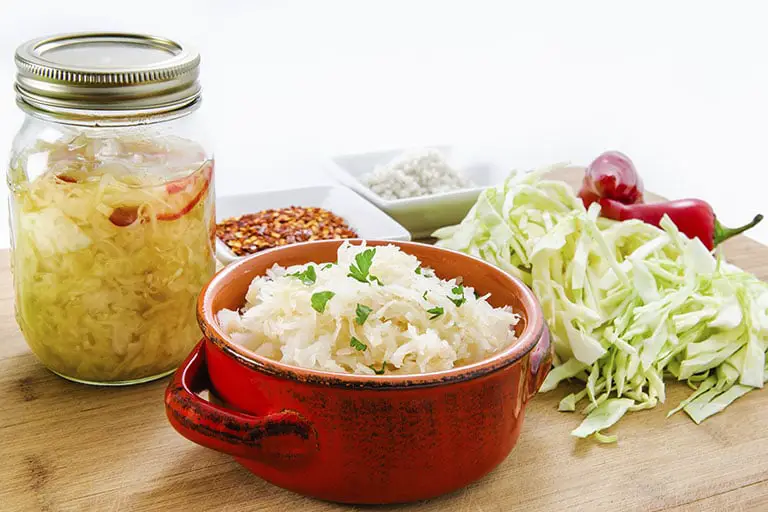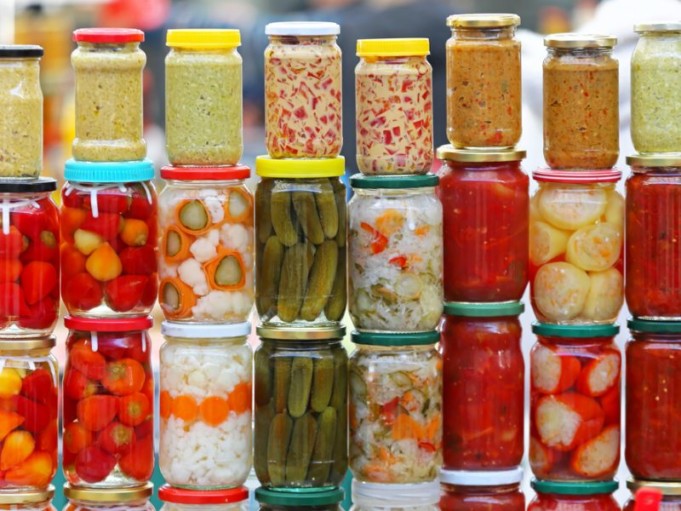In the past, people used fermentation to preserve their food. But, this was long before the days of refrigeration. Since these technological advancements, fermentation has become less popular, until now…
More and more people are jumping on the fermentation train and for good reasons. Read this article to find out about good bacteria and how fermented foods can help your gut function.
Understanding Gut Bacteria
Our gut has millions of bacteria living in it. Some are bad and cause digestion nightmares, skin conditions, and even mental problems. Other gut bacteria are great. They boost our immune system, help us fight viruses, and create the vitamins our bodies need.
When our gut bacteria are out of balance, they affect the rest of our body. Aside from the above, some of the most common symptoms that show your bacteria are out of whack include:
- Vitamin and mineral deficiencies
- The need for antibiotics
- Chronic stress
- Autoimmune diseases
When the bad bacteria take over in the gut, they cause dysbiosis, a term that refers to an imbalance in the gut flora.
Luckily for us all, cultured foods can help…
What Is Fermentation?
 Fermentation is when bacteria, yeasts, and microorganisms break down the chemicals in our foods. During the fermentation process, the ingredients don’t get any oxygen. When this happens, the bacteria feed on the sugar and starch in the ingredients. Later, the ingredients turn into alcohol or acids.
Fermentation is when bacteria, yeasts, and microorganisms break down the chemicals in our foods. During the fermentation process, the ingredients don’t get any oxygen. When this happens, the bacteria feed on the sugar and starch in the ingredients. Later, the ingredients turn into alcohol or acids.
There are thousands of ingredients we eat regularly that fall in the fermentation category. For example:
- Beer
- Chutney
- Sour cream
- Yogurt
But, not all fermented foods are the same. Some are healthier than others. Some also give our bodies awesome probiotics.
Not All Fermented Foods Are Equal
Many confuse pickled foods with cultured foods. Supermarkets preserve pickled foods in an acidic liquid. For example, pickles are pickled in vinegar. While you can use vinegar during the fermentation process, the pickles you find at the supermarket aren’t fermented. They’re simply preserved in the jar of vinegar. This means they don’t have the same health benefits as other cultured foods.
But, that’s not all. Not all fermented foods contain probiotics either.
The Difference Between Cultured Foods and Probiotics
Probiotics are live organisms. They offer a variety of health benefits if we consume the right amount of them as part of a balanced diet. But, not all fermented foods contain probiotics. In fact, many don’t.
This is especially true when it comes to buying shop bought fermented foods.
For example, wine and beer are fermented drinks. That said, while they do contain microbes, manufacturers filter them out before they appear on the supermarket shelves. The same goes for shop bought jars of chutney and cultured vegetables like sauerkraut.
Many of the ingredients we buy from the supermarket are treated with heat. You can tell by reading the labels. If it says “pasteurized”, you won’t benefit from all those healthy probiotics.
The key is in the cooking process. If an ingredient is heat treated, the good bacteria is gone. If it’s not and it doesn’t come packed with additives and other preservatives, you could be in luck!
The Benefits of Eating Fermented Food
Eating and drinking cultured foods comes with a number of benefits beyond preservation. This is especially true when it comes to restoring healthy gut bacteria. Here are 5 health benefits that come from eating fermented foods:
1. Better Digestion
The fermentation process breaks down the ingredients, making them easier to digest. A key example of this is with lactose. Fermenting dairy products breaks down the lactose into galactose and glucose.
This is great for those who are lactose intolerant as through fermentation they can eat small amounts of ingredients such as cheese and yogurt.
2. Increased Nutrient Absorption
Because cultured foods are easier to digest, the body also finds it easier to absorb the nutrients from the ingredients. By increasing nutrient absorption, you’re ensuring that your body is functioning as it should.
Plus, good bacteria is great for producing B vitamins and vitamin K. In fact, research suggests that good bacteria provides us with half our body’s daily vitamin K requirements.
3. Better Immune Function
Gut microbes play an essential role in the function of our body’s immune system. In fact, harvesting more good bacteria in the gut could be key to dealing with some of the more significant health problems that face us today.
Additionally, fermented foods, especially those with probiotics, offer extra support to the lining of our guts. Having a strong gut lining strengthens the immune system. If the gut lining becomes weak, bad bacteria grow and cause inflammation.
Antibiotics are famous culprits for weakening the gut wall. Cultured foods are great if you’ve just finished a course of pharmaceuticals.
4. Removal of Interfering Compounds
Some natural compounds interfere with the way our bodies absorb nutrients and vitamins. Eating and drinking more cultured foods can remove these compounds, thus further promoting nutrient absorption.
Legumes and seeds are perfect examples of ingredients that have compounds that interfere with how our bodies absorb nutrients, most notably phytic acid. Fermentation breaks down the phytic acid in legumes and seeds, making it easier for us to soak in minerals such as zinc and iron.
5. Improved Mood
Have you ever felt nauseous when anxious? Of course you have, we all have. This is because the gut and the brain are linked via the enteric nervous system. In other words, your gut is sensitive to your emotional reaction to situations.
The neurons in the gut affect our emotions and feelings. Not only this, we produce serotonin, a chemical that affects our mood, in our gut.
With this in mind, keeping your gut healthy could improve your emotional well-being and vice versa. And, what better way to improve gut health than with healthy foods?
If cultured foods can contribute to our gut health, what’s to say they can’t improve our mindset too?
How to Eat More Fermented Foods?
A healthy gut needs a variety of foods and adding fermented ones to the mix could make a huge difference to your well-being. There are many ways you can add cultured foods to your diet without making drastic changes that affect your lifestyle.
Here are some of them:
- Eat natural yogurt for breakfast or after lunch
- Swap your supermarket bread for homemade sourdough
- Make some sauerkraut to have as a side dish
- Swap your morning juice for a kombucha, kimchi, or sugar-free tepache
Remember, be wary of cultured foods you buy at the supermarket. Always check the processing methods and look for any unhealthy additives such as refined sugar.
If you suffer from gastrointestinal issues or emotional disorders, then making small changes to your diet could help. Try making a variety of fermented foods at home using organic ingredients and eat or drink them on a daily basis to reap the rewards.
Author Bio:
Sarah Barnes is a freelance writer, marketing consultant, and above all, a digital nomad with a passion for all things travel, food, and health. She’s traveled to more than 50 countries and has worked with a variety of holistic nutritionists and health coaches along her way. She’s currently creating her own platform to help people manage their gastrointestinal problems through healthy yet yummy food.












